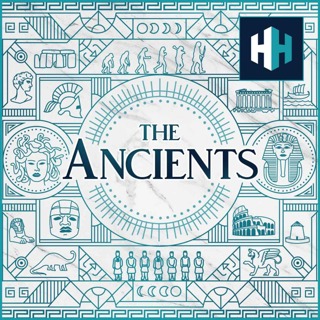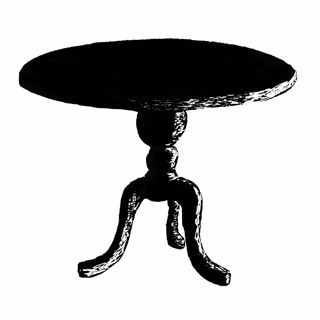
Battle of Artemisium
Around this time 2,499 years ago the famous Battle of Thermopylae was raging. But it is important to remember that this clash was not happening on its own. At the same time, to the east of Leonidas' defence, another battle was underway at sea between Xerxes' great armada and a much smaller Hellenic fleet plagued with internal problems. This was the Battle of Artemisium, an often-overlooked and overshadowed military encounter of the Persian Wars. Its importance, however, was sizeable. I was delighted to have Dr Owen Rees back on the show to talk through this clash, explaining its significance and how it paved the way for one of the most famous naval battles in history: Salamis. Owen is the author of 'Great Naval Battles of the Ancient Greek World.'This episode is the second in a small series covering 4 key clashes of 480 BC, the 2,499th anniversaries of which we are celebrating this year. Some mildly-strong language. Hosted on Acast. See acast.com/privacy for more information.
23 Elo 202052min

Battle of Thermopylae
2,499 years ago the Persian 'Great King' Xerxes launched history's largest amphibious invasion of Europe before D-Day. Accompanied by a huge army and navy he crossed the Hellespont (modern day Dardanelles), intent on punishing the city-state of Athens and any other Hellenic powers that dared to resist. It was during this campaign that one of history's most famous battles was fought, at the Pass of Thermopylae in central Greece. King Leonidas, his 300 (or so) Spartans and their Hellenic allies fought off against King Xerxes' mighty Persian army for three days. To talk through this fascinating battle I'm chatting with Paul Cartledge, a professor from the University of Cambridge and one of the World's leading experts on ancient Sparta. In this fascinating chat, Paul sorts the fact from the fiction about the doomed Thermopylae defence. He starts by explaining the conflict's background, before moving on to the battle itself. We finish off by discussing how this famous battle ultimately created what we now know as 'the Spartan mirage'.This episode will be the first in a small series dedicated to talking about the 480 BC clashes of the Second Persian War, for the 2,499th anniversaries of these battles. Paul is the author of 'Thermopylae: The Battle That Changed the World.' Hosted on Acast. See acast.com/privacy for more information.
20 Elo 202058min

War Elephants
Move over Hannibal. More over Carthage. This podcast is all about a much BIGGER elephant power in antiquity. A power that, at its height, stretched from modern day Bulgaria to the Hindu Kush: the Seleucid Empire. Existing for almost 250 years, throughout this Empire’s long history the Indian elephant remained right at its heart. On the battlefield these giant beasts of war became symbolic of Seleucid warfare, fighting in almost all (if not all) the major military encounters the Seleucids had with other powers: from Ipsus to Magnesia. But away from the battlefield too, these animals retained their importance, particularly for the Seleucid Kings.The history of Seleucid elephant warfare is fascinating and it was a great pleasure to be joined by Dr Silvannen Gerrard to talk through this topic. Silvannen explained how these elephants were trained and used in war, but she also stressed their importance away from the battlefield - their prestige value, the logistics of looking after elephants and how they epitomised a vital trade link with ancient India. She also answered the all important question: did the Ancients send elephants into battle drunk?Oh, and make sure you listen RIGHT to the end!A few notes:Eumenes, Antigonus, Ptolemy and Seleucus were all prominent players fighting after Alexander the Great’s death.Ptolemy was the founder of the Hellenistic Ptolemaic Kingdom, centred in Egypt.Sarrisas were very long pikes – roughly 6 metres long.The Galatians: a conglomeration of Gallic tribes that settled in modern day central Anatolia.We (I mainly) go back and forth between 'Seleucid' and 'Seleukid'. Same kingdom! Hosted on Acast. See acast.com/privacy for more information.
16 Elo 202052min

'Killing for the Roman Republic'
In 281/280 BC, the Hellenistic King Pyrrhus ventured to southern Italy to aid the Italiote-Greek city of Tarentum against a rising power based in central Italy. This enemy was the Romans. Over the next 150 years this civilisation would rise to become the Mediterranean superpower, winning wars against the Carthaginians, the Antigonids, Seleucids, Ptolemies and various other enemies. But why were the Roman soldiers so effective? I was delighted to be joined by Dr Steele Brand who brilliantly answered this question. Steele explained how the Roman Republican military was far from invincible. Indeed what is so striking from this period is how many devastating defeats the Romans suffered in the process - from Heraclea to Cannae. What made the Romans so extraordinary, however, was their mindset: the Roman civic ethos that was ingrained in its citizens from childhood. Steele explained how the household farm served as an ‘incubator’ for habituating citizens to Roman virtue, which in turn ensured that citizens remained willing to serve even in the wake of catastrophic military defeats. In short, it was these part-time ‘soldier farmers’ that became the nucleus of antiquity’s most famous empire.Steele is the author of 'Killing for the Republic: The Roman Way of War'. Hosted on Acast. See acast.com/privacy for more information.
13 Elo 202059min

Combat Trauma
From the 2000 historical blockbuster 'Gladiator' to the Total War series, brutal hand to hand warfare is something we commonly associate with antiquity. But do we have any ancient cases of psychological injury as a direct result of military service? Joining me to discuss this topic, focusing on cases from the Classical Greek Period (c.500 – 323 BC), is Dr Owen Rees. Owen is a historian of ancient warfare and society. He has also written papers about the possibility of an equivalent phenomenon to PTSD in ancient Greek warfare and how that trauma manifested itself differently in ancient Greek culture. In this podcast, we focus on the cases of two specific individuals from the Classical Period: Epizelus the Athenian and Clearchus the Spartan. Hosted on Acast. See acast.com/privacy for more information.
9 Elo 202048min

Stone Circles
From Cornwall to Orkney, stone circles are scattered throughout the length and breadth of the British Isles. Their history stretches more than 2 millennia, varying from the earlier huge stone circles such as Castlerigg, Avebury and the Ring of Brodgar to the smaller and more regional circles that emerged after c.2,000 BC. Their remains continue to attract great amounts of visitors right up to the present day.To learn more about these extraordinary prehistoric structures, I'm chatting with Timothy Darvill OBE, a professor from the Department of Archaeology and Anthropology at Bournemouth University and the author of Prehistoric Britain. Hosted on Acast. See acast.com/privacy for more information.
2 Elo 202033min

Agrippina the Younger
Agrippina the Younger (AD 15 - 59) was one of the most prominent women in the Julio-Claudian dynasty. Born during a time of radical political change in the Roman Empire, she had a very powerful pedigree. Great granddaughter of Augustus. Niece of Tiberius. Daughter of Germanicus. Sister of Caligula. She was also a wife of the Emperor Claudius and the mother of the infamous Nero. Today she is remembered as one of the most notorious women of ancient Roman history, thanks largely to her negative portrayal in the works of Cassius Dio, Suetonius and Tacitus. But how much of what they say is true? Joining me to help sort the fact from the fiction is Carey Fleiner, Senior lecturer in Classical Roman History at the University of Winchester. A brilliant communicator, Carey convincingly explains how the material record reveals a very different Agrippina to the infamous power-hungry murderess depicted by Roman writers. This was a fantastic chat and it was great to have her on the show to chat all things Agrippina. A couple of clarifications from parts of the interview:Agrippina was 22 when she gave birth to Nero.Suetonius included the remark 'I have swords as well as islands'Gaius Sallustius Crispus Passienus was the name of Agrippina's second husband. He had been prominent during the reign of Tiberius (not Julius Caesar) Hosted on Acast. See acast.com/privacy for more information.
26 Heinä 202056min

Horse Archery
The horse archer was one of the most feared warriors of antiquity. Triumphing mobility and fluidity, these swift skirmishers came to epitomise a feared ‘eastern’ style of warfare. Renowned historical weapons expert and avid horse archer Mike Loades joins me to chat through horse archery's ancient history. Where did it originate? How did this method of warfare come to be? What sort of equipment did they use? Mike explains all. We first focus on this warfare method’s importance among ancient Near Eastern cultures before taking an in-depth look at antiquity’s superlative horse archers: the Scythians!Mike is the author of ‘War Bows’, an in-depth history of four iconic weapons that changed the nature of warfare. Hosted on Acast. See acast.com/privacy for more information.
19 Heinä 202058min






















